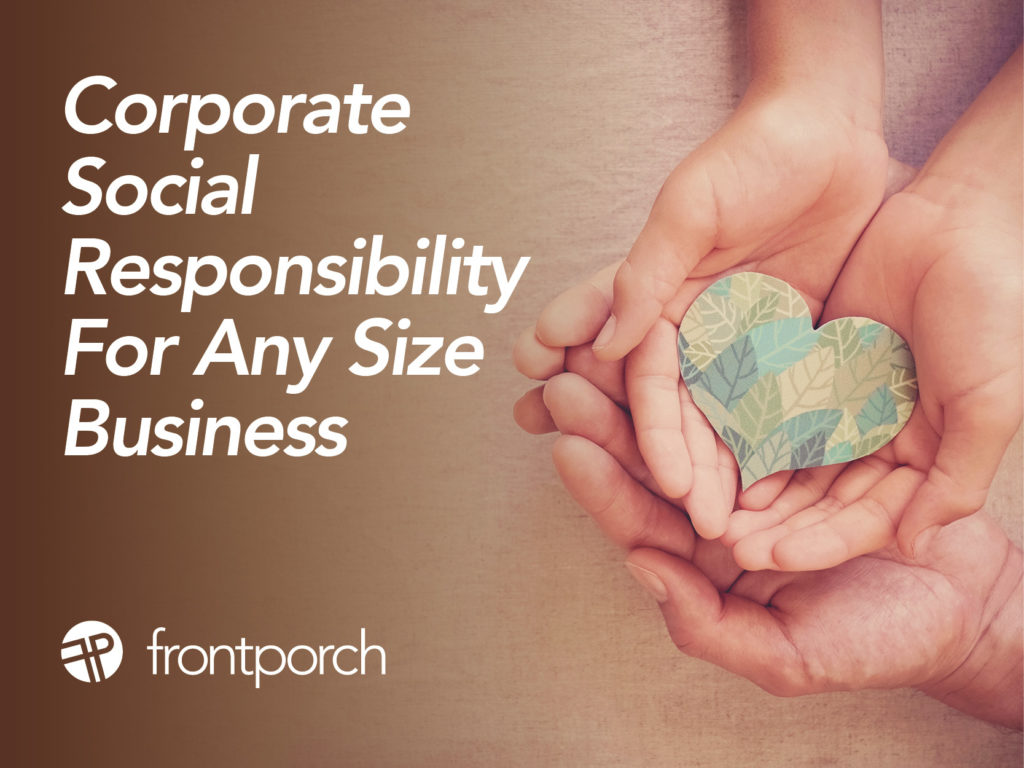
How to communicate corporate social responsibility for your brand
Corporate social responsibility (CSR) is a business’ commitment to philanthropic endeavors and environmentally friendly practices. It is essential for businesses in 2022. Why? Sure, today’s successful businesses are “responsible” organizations committed to profits. But in today’s world they are also responsible for other higher callings. Their consumers now demand it.
Gen Z is all in with brands who demonstrate corporate social responsibility. First, younger generations thirst for buying these products. Next, they want to work for these companies. So CSR gives businesses an opportunity to engage with not only their consumers and their employees, but with the communities in which they live and work in a meaningful way.
Yes, deeper client and customer connections will follow.
CSR efforts benefit the economy, society and environment. They demonstrate how the organization uses its resources in broadly beneficial and ethical ways. Showing that your company or brand is a responsible partner, employer and neighbor will be key to business success going forward.
How does a brand communicate CSR activities?
Talk about your company’s corporate social responsibility with a CSR report. A CSR report highlights your organization’s achievements. It builds social responsibility into your brand’s identity. This report makes the organization accountable to its stakeholders. And it shows progress year over year. Then highlight how your company has saved energy or fuel, renewed land, or reduced their carbon footprint. Finally, showcase better employees work environments with safety initiatives. Also implement DE & I programs that promote equity in hiring and promoting employees.
Your CSR report’s content can then be repurposed all year long as social media assets. Highlight individual specific goals your company has met with this effort. Statistics and data can be turned into compelling visuals and narratives that speak to your customers, your client partners, your employees and your community. Communicate your social responsibility efforts in these ways:
- Email Marketing – create an eblast once a month or quarterly to key stakeholders
- Social Media – create content and consistently communicate, once a week or month
- Internal Communication – utilize existing intranet or internal emails to communicate CSR activities
What size business needs to show Corporate Social Responsibility?
A CSR report may be easier for larger businesses to execute. But, small to midsize businesses can do it too. These businesses are exercising the same values albeit in smaller, yet still remarkable ways. And that is worth talking about. CSR activities can separate your business from the competition in a truly meaningful way. So consider incorporating this important effort into your business.

